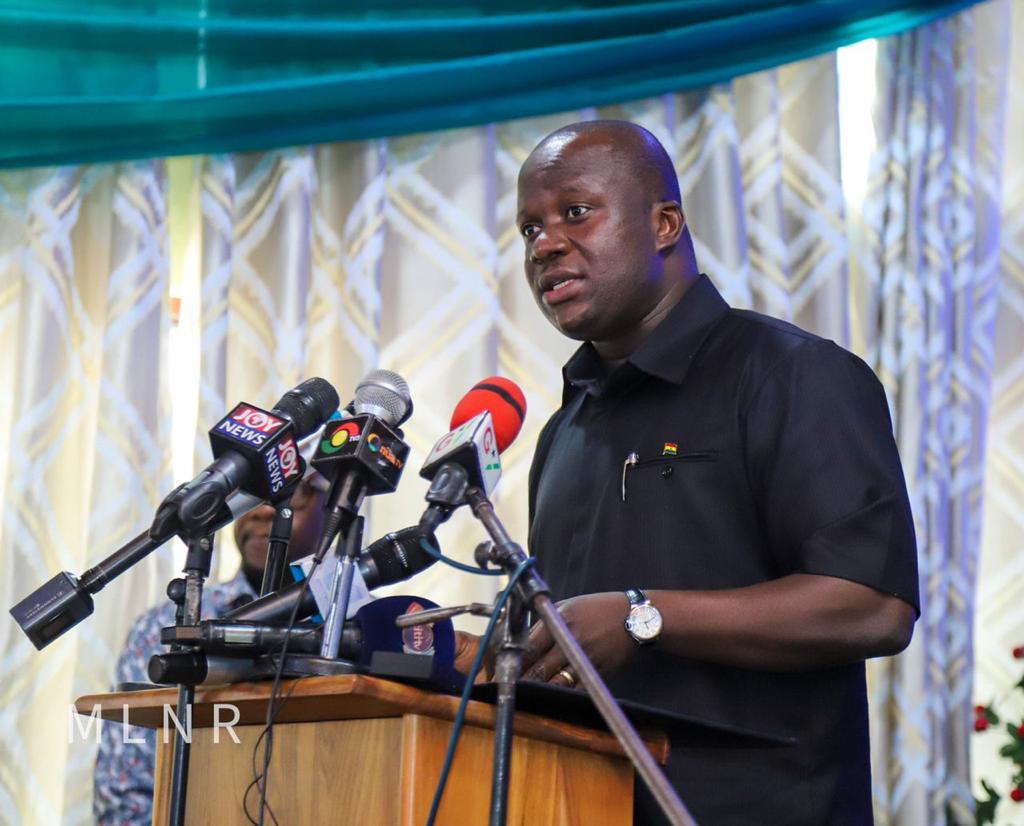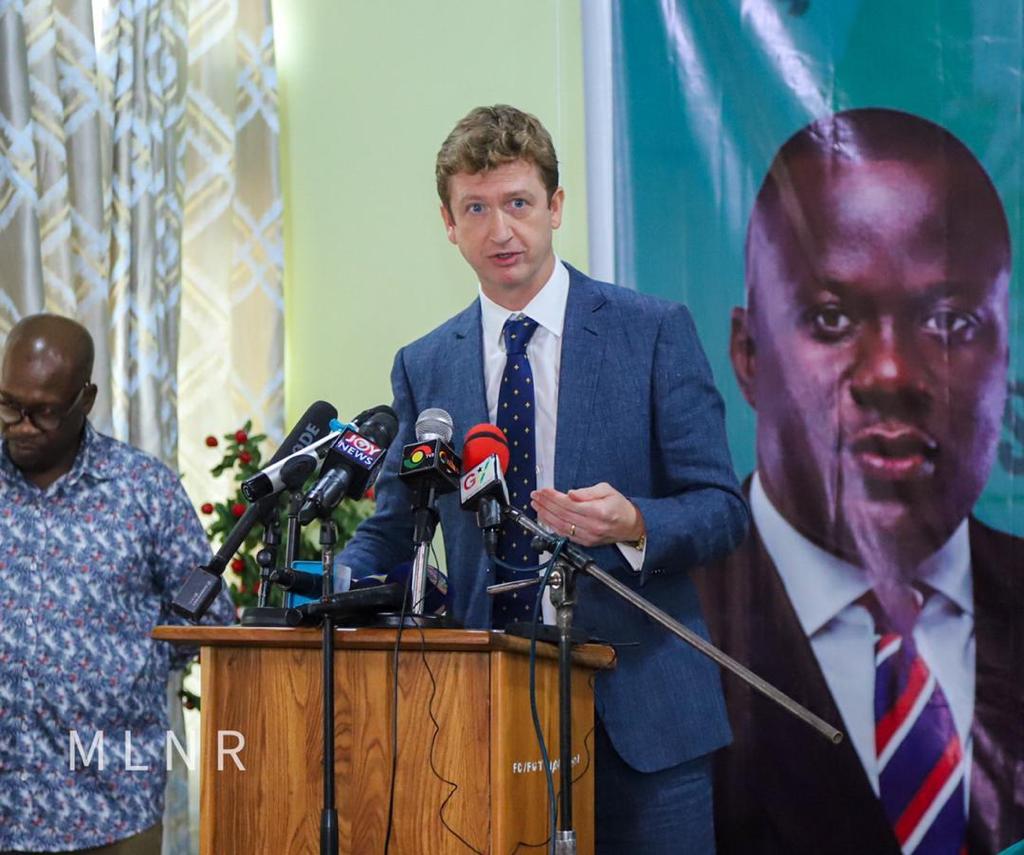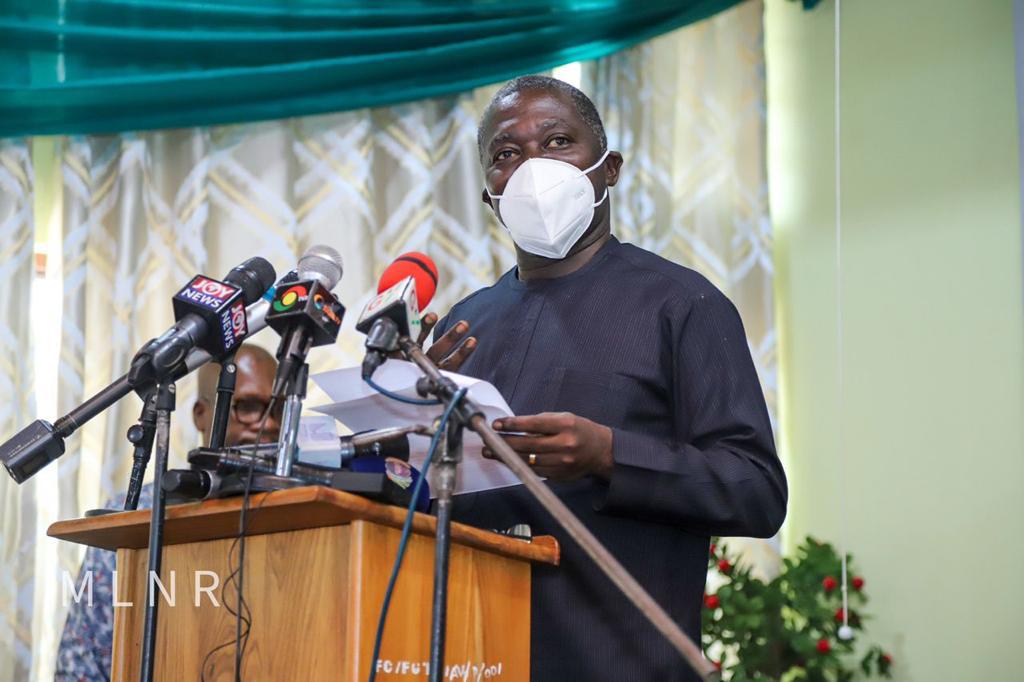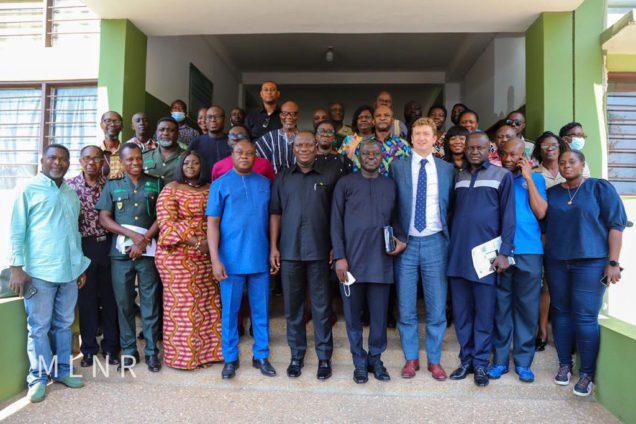The Forestry Commission has joined the Government’s digitisation drive to launch two online applications, the Digitalised Property Mark Registration and Renewal (e-property mark registration) and the Electronic Wood Tracking System.
The e-property mark registration is a web-based application that automates the process of property mark registration and renewal. At the same time, the electronic wood tracking system allows the tracking of wood from the time of harvest to the time of final disposal.
With the introduction of these applications, the Forestry Commission joins agencies under the Ministry of Lands and Natural Resources like the Lands Commission and the Minerals Commission who have already moved some key services online.
Launching the applications, the sector Minister, Samuel Abu Jinapor, said President Akufo-Addo’s vision to promote socio-economic development through digitisation cuts across all aspects of our national life, and the Forestry Commission could not be left out in this drive.

“The technological infrastructure for accessing the international timber market and attracting the requisite investment demand a level of sophistication that yesterday’s systems and norms can no longer respond to. We must, therefore, innovate constantly and keep pace with the technological advancements necessary to access the international market,” the Minister said.
Section 2 of the Trees and Timber Act, 1974 (NRCD 273), requires anyone who cuts or fells trees for export or conversion in the mill to register a property mark and renew it every six months.
Before the introduction of this e-property mark registration, persons who seek to register or renew their property marks will have to move from the District offices to the regional offices and finally to the Head office of the Forestry Commission in Accra to complete the registration, a process that lasted approximately two months. With the introduction of this technology, loggers can register and/or renew their property marks in a day without moving to the various offices.
The Minister said the country's forest resources contribute significantly to the economy, and the government is committed to sustainably managing them to ensure that future generations and communities have better, richer, and more valuable forests and wildlife endowments.

To this end, the government has commissioned a study to revamp the timber industry to position the country to take its rightful place on the international timber market.
Mr Jinapor added that the electronic wood tracking system, which was developed with the help of the British government, and will be powered by solar, forms part of the Forest Law Enforcement, Governance and Trade initiative, which seeks to ensure that only legal wood is traded on the market.

The West African Climate Change and Natural Resource Advisor of the British High Commission, who represented the High Commissioner, pledged the commitment of the British Government to partner with the Ministry of Lands and Natural Resources to protect and manage the forest resources of the country effectively.
On their part, the Forest Industry Association of Ghana commended the Forestry Commission and the Ministry for the initiative.
After the launch, the Minister inspected a reclamation site in the Bosome Freho District of the Ashanti Region. He pledged the government’s commitment to reclaim all degraded lands in the country. Speaking to the media after the inspection, the Minister said the lack of reclamation over the years, particularly by small scale miners, has resulted in many degraded mining lands across the country.

As part of the fight against illegal mining and the destruction of the environment and water bodies, the Minister said government has developed a robust reclamation programme to be pursued by the Minerals Commission, the Forestry Commission and the National Alternative Employment and Livelihood Programme across the country.
The Minister also said the Ministry is considering the establishment of a National Reclamation Fund to support the programme. He said the capital-intensive nature of the exercise requires that we set aside a dedicated fund to carry out the exercise.
And to prevent future occurrences of degraded mining lands, Mr Jinapor said the government is now implementing a concurrent reclamation policy, where miners will be required to reclaim and revegetate any place they excavate before moving on.
He said although the law enjoins small scale miners to reclaim and revegetate lands within one month after their operations, most small scale miners refuse to comply with this law, resulting in the many degraded lands across the country.
Therefore, the concurrent reclamation policy will prevent the incidence of miners abandoning degraded lands after their operations.
Latest Stories
-
(Photos): Asantehene hosts King Mswati III in spectacular Manhyia banquet
2 hours -
King Mswati III gifts KNUST Eswatini students $1,000 each
2 hours -
Trump wants to end birthright citizenship. Where do other countries stand?
2 hours -
Man City favoured, but not popular, in Club World Cup betting
2 hours -
BoG reversal of sacked employees would not have happened under Akufo-Addo – Franklin Cudjoe
2 hours -
Majority Leader justifies 2.45% electricity tariff hike
3 hours -
Western Region police arrest 44 suspects in major ‘galamsey’ raid
3 hours -
NADMO to launch nationwide building assessment following Cape Coast disaster
3 hours -
Over 5,700 residents displaced by flooding in Central Region as NADMO responds to crisis
3 hours -
8 arrested over Nkwanta clashes
5 hours -
Dr. Bryan Acheampong demands national AI strategy to drive economic growth
5 hours -
Ghana prepares for deportation of 188 nationals amid U.S. immigration crackdown
5 hours -
Corruption has no place in Ghana’s future – Nana Oye
6 hours -
Don’t forget your roots: Nana Oye interacts with Ghanaian diaspora in Austria
6 hours -
Migrating to Europe changes gut bacteria and raises heart disease risk – study finds
7 hours

